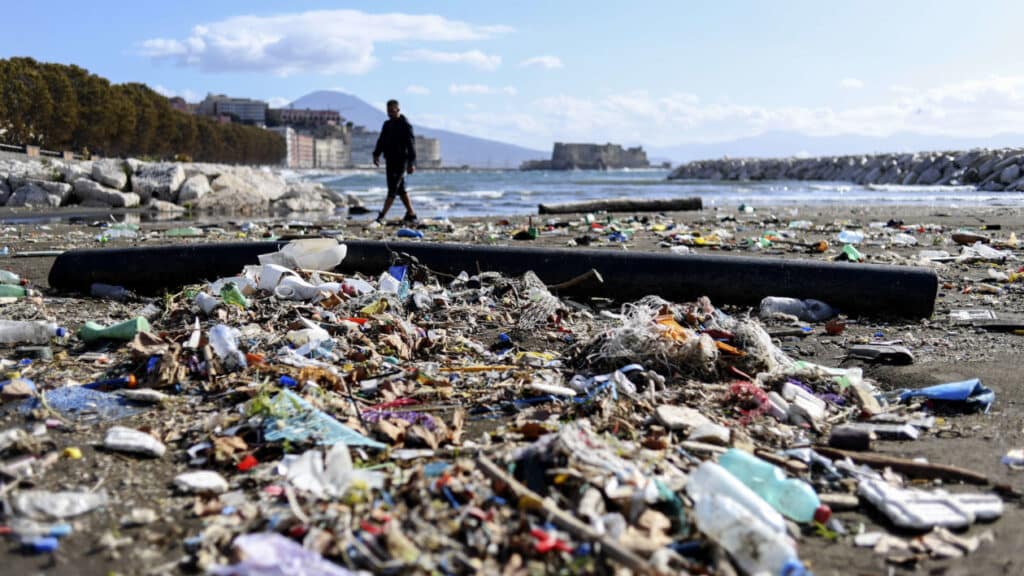- As part of a broader effort to create a circular economy that reduces waste and greenhouse gas emissions, the European Union will ban a host of throwaway plastic items next month and is working to create an expansive and lucrative market for recycled plastics

In Europe, beachgoers have grown accustomed to the dispiriting sight of plastic garbage strewn along shorelines. Indeed, 85 percent of the continent’s saltwater beaches and seas exceed pollution standards on marine litter. The Mediterranean Sea is the most defiled of all, with researchers collecting an average of 274 pieces of plastic refuse per 100 meters of shoreline. And beneath the waves, microplastics have turned coastal waters into toxic “plastic soups.”
In an all-out push to clean up Europe’s beaches — one plank in the European Union’s trailblazing efforts to address the almost 28 million tons of plastic waste it generates annually — a ban comes into effect July 3 that halts the sale in EU markets of the 10 plastic products that most commonly wash up on the continent’s shores. These include, among other items, plastic bottle caps, cutlery, straws and plates, as well as Styrofoam food and beverage containers.
Europe’s new plastics economy dates back to the mid-1990s, when the principle of extended producer responsibility was enshrined in EU law. Extended producer responsibility (EPR), argues a Zero Waste Europe paper, is “crucial to incentivize the redesign of products with circularity in mind … Ensuring producers bear 100 percent of the cleanup costs will encourage the manufacturer to work with municipalities to ensure high collection of their products.”
Also, in 2019 the EU adopted a directive that by 2025 all EU countries integrate 25 percent recycled plastic in clear plastic bottles and 30 percent in all plastic beverage bottles by 2030. This mandatory minimum — already in force in Germany, Denmark and Norway — adds value to plastic waste, since plastic producers need it and will pay for it.
Above are the passages from article – Europe’s Drive to Slash Plastic Waste Moves Into High Gear.
Author-Paul Hockenos
—adds value to plastic waste, since plastic producers need it and will pay for it.
As the leadship of plastics recycling,EU determined to control the plastic import.
Which also matched our goal,packaing conbine the natual materials bamboo cap+glass bottle to reducing the plastic percent in the packaging.
Visit the category right now of the bamboo dropper bottle, bamboo lotion pump, bamboo cream jar, bamboo cosmetic packaging.
